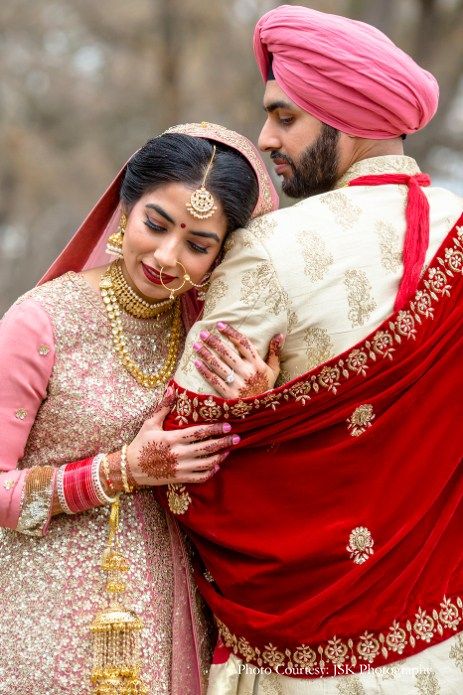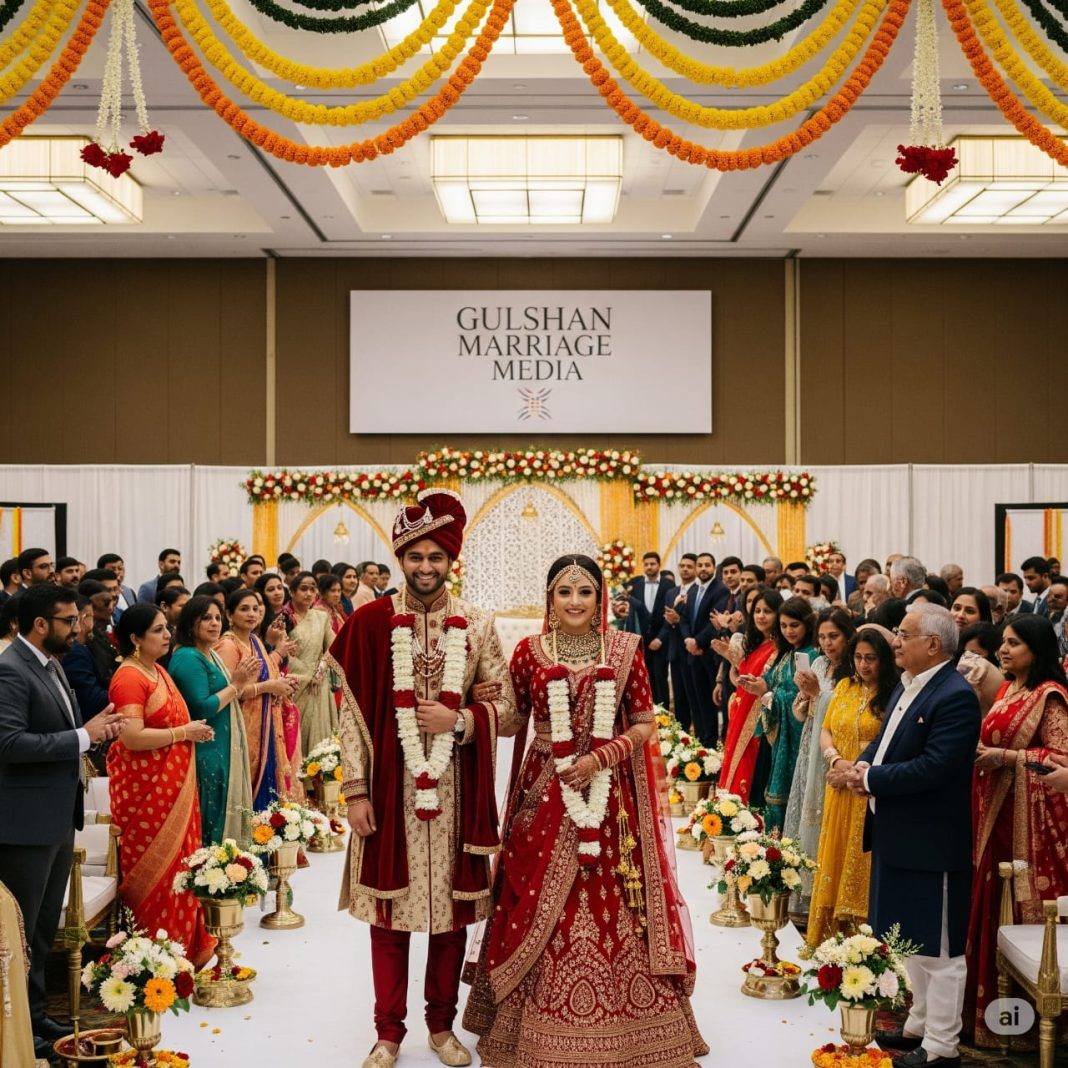Why Do People Marry for Status but Suffer in Silence?

Why Do People Marry for Status but Suffer in Silence? In a world where image often outweighs authenticity, marriage is no longer just about love, companionship, or compatibility. For many, it becomes a transaction — a social agreement designed to elevate status, secure financial standing, or appease societal expectations. On the surface, these marriages appear glamorous and successful. But beneath the glittering exterior lies a silent struggle — emotional emptiness, loneliness, dissatisfaction, and sometimes, quiet despair.
The Social Pressure Behind “Status Marriages”
This article delves deep into why people marry for status, what they hope to gain, and why so many end up suffering in silence. For marriage media platforms, understanding this dynamic is vital — not just to guide clients toward better choices, but to redefine what truly matters in marriage.
Why Do People Marry for Status but Suffer in Silence?
- The Cultural Blueprint
In many cultures, especially in South Asia, the blueprint for an “ideal” marriage includes financial stability, social prestige, a well-known family name, and physical appearances. The pressure to “marry up” is immense.
- A man from a middle-class family may be encouraged to marry a wealthy woman to elevate his family’s status.
- A woman might be pushed to accept a powerful, high-profile suitor despite clear personality incompatibilities.
The logic is simple: a marriage that impresses others is seen as successful — even if it’s emotionally hollow.
- Family Expectations
Family plays a central role in arranged marriages. Parents often see their children’s marriage as a reflection of their own social success.
“If my son marries into a wealthy or influential family, it means we’ve done well.”
This mindset can pressure individuals to prioritize family pride over personal happiness.
- Peer Comparison
Social media has intensified this phenomenon. When your friends are marrying doctors, engineers, or successful entrepreneurs, the temptation to follow suit grows — even if your heart says otherwise.
- The Allure of Status in Marriage
What is it about status that people find so irresistible?
- Financial Security
For many, marrying someone with wealth offers a kind of safety net. Life becomes easier, more comfortable. The appeal of luxury, travel, and material comforts can overshadow emotional concerns — at least temporarily.
- Prestige and Influence
Being connected to a powerful family or individual can open doors. It can bring career opportunities, business connections, or simply social admiration.
“My husband is a CEO,” or “My wife comes from an elite family” becomes a badge of honor.
- Fear of Being Left Behind
In societies obsessed with upward mobility, people fear becoming irrelevant or being judged for “settling down” with someone ordinary.
- The Silent Struggles After the Wedding
While these marriages begin with status-driven dreams, they often descend into quiet emotional turmoil. Why?
- Lack of Emotional Connection
Marriages built on status often overlook emotional compatibility. The result?
- Awkward conversations
- Lack of shared values
- Emotional neglect
- Feeling like strangers in the same home
When hearts don’t align, the marriage becomes a chore, not a choice.
- Power Imbalance
In many status-driven marriages, one partner holds significantly more power — financially or socially. This imbalance creates:
- Control issues
- Dependence
- Silencing of one partner’s needs
- Toxic dynamics
Often, the lower-status partner feels indebted, losing their voice in the relationship.
Why Do People Marry for Status but Suffer in Silence?
- Suppression of Individual Desires
Many people in such marriages give up their hobbies, career goals, or even personal beliefs to maintain the illusion of a “perfect marriage.” Over time, this leads to identity loss and internal resentment.
“I can’t speak up. I can’t be myself. But at least I have the status.”
- Social Isolation
Ironically, marrying for social elevation can make people more isolated. Friends may drift away, assuming you’re “too high up” now. New circles may be superficial, offering no real emotional support.
- Why Don’t They Speak Up or Leave?
You may wonder: if they’re suffering, why don’t they say anything? Why not divorce or at least confront the issues?
- Fear of Judgment
Admitting that a “perfect-looking” marriage is failing can be shameful, especially if the whole community celebrated it. Divorce or public conflict would be seen as failure — not just personally, but for the family.
- Financial Dependence
In cases where one partner holds all the wealth, the other may feel trapped — afraid to start over or lose a comfortable lifestyle.
- Children and Responsibilities
Many stay silent for the sake of the children, believing it’s better to maintain the structure than cause disruption. But this often exposes children to unhealthy relationship dynamics.
- Conditioning and Guilt
Society teaches people — especially women — to “adjust” and endure. Speaking up is seen as being ungrateful or dramatic.
“At least you live in luxury. Why are you complaining?”
This emotional invalidation keeps people quiet, year after year.
- The Psychological Toll
Living in a status marriage without emotional fulfillment takes a heavy mental toll.
- Depression and Anxiety
- Pretending to be happy constantly
- Feeling alone even when surrounded by people
- Fear of losing status or being judged
These can manifest as chronic anxiety, low self-worth, or even clinical depression.
- Emotional Burnout
Constantly trying to maintain appearances while suppressing true emotions can lead to emotional numbness — people become detached from both their partner and themselves.
- Self-Esteem Erosion
Being in a marriage where love feels conditional or transactional makes people question their own worth. They start believing they are only valuable as long as they maintain appearances.
- Real Stories Behind the Curtains
Story 1: The Corporate Bride
Nadia, 29, married a wealthy corporate executive her family admired. Their engagement was the talk of the town.
“Everyone envied me. But I couldn’t remember the last time he held my hand or asked me how I felt. I lived in a palace but cried in silence.”
Story 2: The Trophy Husband
Rafiq married into an elite family and gave up his small business to work in his wife’s family company.
“They owned everything. I was just an accessory. I had to smile and nod at every gathering. I forgot who I was.”
These are not isolated stories. These are the invisible heartbreaks behind fancy wedding albums.
- How to Avoid Status-Based Marriages
As a marriage media, it’s crucial to guide clients toward emotionally fulfilling matches, not just impressive alliances.
- Ask the Right Questions
Encourage clients to reflect on:
- What do I want in a life partner beyond financial stability?
- Can I be emotionally safe with this person?
- Do we share values, dreams, and conflict resolution styles?
- Encourage Open Communication
Before marriage, couples should discuss:
- Life goals
- Family expectations
- Personal boundaries
- Financial transparency
- Career ambitions
- Discourage Rushed Decisions
Many status marriages are rushed due to family pressure or societal deadlines. Take time. Authentic relationships grow with patience.
- Educate Families Too
Host seminars or counseling sessions for families to highlight the dangers of status-driven matchmaking. Shift the focus from “status” to “suitability.”
- What Marriage Should Really Be About
Marriage should be a partnership, not a performance.
- It should feel safe, not strategic.
- It should be a space for growth, not silent sacrifice.
- It should bring joy, not just jewelry or joint accounts.
While marrying someone successful or wealthy isn’t inherently wrong, doing so only for status — without genuine emotional connection — can lead to lifelong misery.
- A Word to the Sufferers
If you are in a status marriage and suffering in silence, know this:
You are not alone. Your emotions are valid. Your suffering is real — even if others don’t see it.
- Seek therapy or counseling
- Reconnect with your identity
- Set emotional boundaries
- Find trusted people to talk to
And if it ever becomes unbearable — know that leaving is not failure. Choosing peace over prestige is the bravest thing you can do.
- How Marriage Media Can Make a Difference
As a marriage media service, your role is not just to arrange matches but to educate, empower, and guide.
Your Responsibilities:
- Vet profiles for emotional maturity, not just family names
- Offer premarital counseling services
- Share real stories and awareness content
- Promote transparency over trends
- Stand for healthy, joyful relationships — not just photogenic ones
The more marriage media platforms take this ethical, holistic route, the fewer people will have to suffer silently behind designer wedding outfits.

- Historical Roots of Status-Driven Marriages
- Legacy of Class and Caste
Status-based marriages are not a modern invention. Historically, the idea of marrying within or above one’s social class or caste was strictly enforced in many societies.
- In South Asia, the caste system determined who one could marry. Inter-caste marriages were often forbidden, even punishable.
- In Europe, noble families often arranged marriages to preserve or expand land, wealth, and alliances — love was irrelevant.
- In East Asia, family background, education level, and ancestry played a massive role in matchmaking.
The idea that marriage is not a personal but a family affair is deeply embedded in history. Even today, in urban settings, this ancient mindset quietly lingers — especially among the wealthy or socially ambitious.
- Colonial Influence and the Rise of Prestige
During colonial rule, those who worked closely with the ruling class (as zamindars, officers, etc.) gained prestige. Families wanted to associate — through marriage — with those in power. This era embedded a belief that marrying up equals climbing the ladder, even if the heart is never truly involved.
- The Modern Face of Status Marriages
Today’s status-driven marriages may not involve palaces and dowries, but they are wrapped in modern clothing:
- Instagram-perfect couples with no real emotional intimacy.
- Career-driven marriages where two high-achievers tie the knot for power couple status — yet live parallel lives.
- Celebrity or influencer matches that grab headlines but crumble silently behind the scenes.
Even in educated societies, matchmaking apps and elite marriage media sometimes promote status indirectly: “Only Ivy League graduates,” “Must be from a reputed family,” or “Minimum monthly income BDT 5 lakh+.”
This focus often sidelines core human needs like trust, emotional availability, empathy, and communication — which truly sustain a marriage.
- Psychological Motivations Behind Choosing Status
To understand why someone would willingly walk into an emotionally risky marriage just for status, we must look into psychological drivers.
- Insecurity and Inferiority
Some individuals believe that marrying someone more successful or wealthier will validate their own worth.
“If someone from such a high family wants me, then I must be valuable.”
This stems from deep-seated self-doubt and the need for external approval.
- Fear of Being Alone
The fear of “missing the train” pushes many into quick, superficial marriages. Especially in cultures where age is linked with worth, people in their late 20s or early 30s may accept a status match, thinking love can come later — or is optional.
- People-Pleasing Behavior
Those who’ve been conditioned to prioritize others — especially their family’s wishes — often say “yes” to a match that looks good on paper, even if their gut says “no.”
- Childhood Conditioning
Children who grow up in families where image is everything are often trained, directly or indirectly, to make choices based on external validation. A child who always heard, “You must marry someone who will make us proud,” is more likely to prioritize prestige over compatibility.
- The Cost of the “Perfect Picture”
Let’s analyze the real cost of these seemingly ideal marriages.
- Emotional Starvation
Over time, the absence of emotional intimacy creates a hollow inside the relationship.
- Partners stop sharing feelings.
- Love is replaced by obligations.
- Loneliness grows even in shared physical spaces.
This emotional starvation is slow and silent — but deeply destructive.
- Compromised Mental Health
Psychologists report that people stuck in status-based marriages often suffer from:
- Panic attacks
- Sleeping disorders
- Lack of concentration
- Emotional breakdowns
Since they can’t speak up, the stress internalizes, often resulting in somatic symptoms like headaches, ulcers, or chronic fatigue.
- Living a Double Life
To protect appearances, many people live double lives:
- Smiling at public events while crying in the bathroom
- Posting couple photos while having separate bedrooms
- Telling friends they are “blessed” while struggling silently
This emotional duality chips away at authenticity and self-worth.
- How Children Get Affected
Children of parents in status marriages grow up in emotionally confusing environments.
- Emotional Neglect
Parents distracted by appearances or stuck in unhappy dynamics often emotionally neglect their children. They provide for physical needs but not emotional ones.
- Role Modeling Dysfunction
Kids absorb what they see. If they grow up watching:
- Parents who don’t speak honestly
- Conflict without resolution
- A mother silenced by tradition
- A father emotionally unavailable
They carry these templates into their own future relationships.
- Repeating the Cycle
Many adults who grew up in these homes end up replicating the same choices — marrying for image, not for intimacy — thus continuing the silent suffering cycle.

- How Marriage Media Can Disrupt This Cycle
As a marriage media brand, you are not just matching people — you are influencing how relationships are shaped.
Here’s how you can help stop the cycle of suffering:
- Screening Beyond Surface
Instead of only asking for income, location, and family background — start including:
- Emotional availability questionnaires
- Conflict resolution style assessments
- Value compatibility
- Future vision (children, work, independence)
- Promote Value-First Matches
Highlight success stories not just of high-profile matches, but emotionally thriving ones. Celebrate depth, not just dowry.
- Offer Counseling & Workshops
Create spaces where individuals and families can learn:
- How to balance ambition with affection
- How to identify emotional compatibility
- The dangers of ignoring red flags for the sake of prestige
You can even offer post-marriage support — helping couples grow emotionally after the wedding.
- Redefine Success
Change the narrative on your page, blog, and social platforms.
Instead of:
“Our client married a business tycoon.”
Say:
“Our client found a partner who makes her feel seen, safe, and respected.”
That’s the true power of marriage media with purpose.
- Voices from the Inside
Let’s hear from people who have lived through such marriages. These are fictionalized composites based on real patterns.
“I Thought I Was Winning”
“Everyone said I was lucky — marrying someone from one of Dhaka’s most prestigious families. But I felt like a decorative item at events. We didn’t speak unless we had to. I missed being loved for who I am.”
– Farzana, 33
“My Dreams Were Replaced with Decor”
“I wanted to study abroad. But after marrying a rich man’s son, I was expected to stay home, wear jewelry, and host guests. I became a performer, not a person.”
– Rumana, 29
“I Was a Shadow in Her World”
“My wife came from money and influence. I thought I’d be elevated. Instead, I lost myself. Every decision was hers or her father’s. I just existed silently.”
– Imran, 37
These stories are painful reminders that marriage should be a mutual bond, not a status badge.
- What Real Compatibility Looks Like
Forget status. If you want a marriage that lasts and brings peace, look for these:
- Mutual Respect: Both partners see each other as equals.
- Shared Values: Faith, family priorities, money beliefs.
- Conflict Skills: Can they argue without hurting each other?
- Emotional Openness: Can you be vulnerable without fear?
- Teamwork: Do they support your growth or restrict it?
These are the real markers of a successful marriage — not the wedding venue, not the car model, not the family name.
- Breaking the Silence: What You Can Do
If you’re in a status marriage and suffering:
- Name Your Feelings
Stop pretending. Journal or speak with a therapist about what you’re truly feeling. Naming your pain is the first step toward healing.
- Set Micro-Boundaries
You may not be able to change everything at once, but start small:
- Ask for space when overwhelmed.
- Set financial clarity.
- Say no to family events if needed.
These micro-moves create psychological distance from the pain.
- Seek External Support
Connect with:
- Counselors
- Support groups
- Trusted friends
Speaking your truth in a safe space can be incredibly empowering.
- Evaluate Your Future
Ask yourself:
- Can this marriage be rebuilt with effort?
- Will couple’s therapy help?
- If not, do I have the resources and courage to walk away?
No decision is wrong if it brings you back to yourself.
- Final Words: From Prestige to Peace
In a world that glorifies surface success, choosing authentic love over status is a radical act.
Status will impress others. But only safety, softness, and shared dreams will carry you through life’s storms.
If you are still single, choose wisely.
If you are already married for status, but suffering — remember, you deserve more than a trophy life.
And if you are a marriage media, matchmaker, or counselor — be the bridge that leads people away from performance and into peace.
Because at the end of the day, the world doesn’t sleep in your bed — you do.
Final Thoughts :
Marrying for status might look successful on the surface — but when it comes at the cost of your peace, self-worth, and joy, is it really worth it?
Society may applaud you. Social media may admire you. But at the end of the day, only you sleep beside your truth.
True marriage is not a tool for elevation. It’s a journey of connection, care, and emotional partnership. Choose wisely. And if you’ve already chosen wrong, know that change is always possible — with courage, support, and self-respect.




















